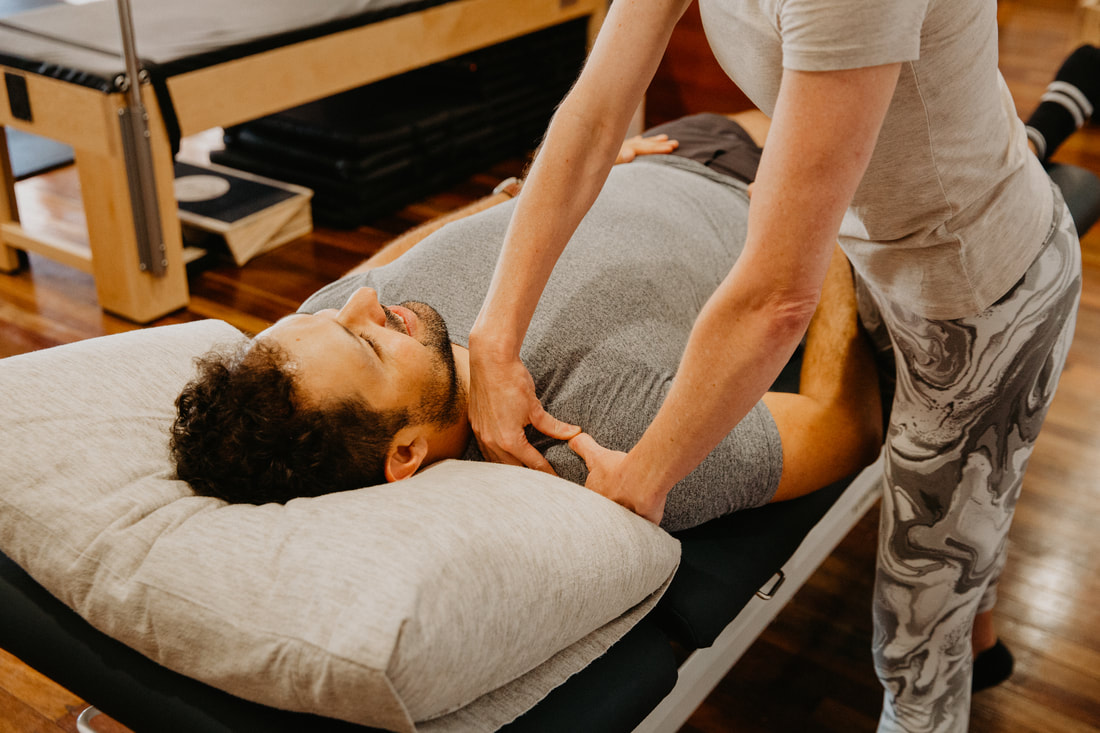Shoulder impingement physiotherapy Brisbane southside.
Shoulder impingement syndrome is a common condition that affects millions of people worldwide. It is a condition in which the rotator cuff tendons in the shoulder become compressed or irritated, resulting in pain and limited movement. If left untreated, shoulder impingement can lead to a more severe condition called rotator cuff tear, which can require surgery. However, with early diagnosis and proper treatment, most people can recover fully from shoulder impingement.
What is shoulder impingement?
Shoulder impingement occurs when the tendons and bursa of the rotator cuff become compressed or pinched between the bones of the shoulder. This can happen due to repetitive overhead movements, poor posture, or aging. People who participate in sports that require repetitive overhead movements, such as baseball, tennis, and swimming, are at a higher risk of developing shoulder impingement.
How is shoulder impingement diagnosed?
A physiotherapist can diagnose shoulder impingement by taking a detailed medical history and performing a physical examination. They may also use imaging tests such as X-rays, MRI, or ultrasound to confirm the diagnosis and rule out other conditions that can cause shoulder pain.
How can physiotherapy help after shoulder impingement diagnosis?
Physiotherapy is an effective treatment option for shoulder impingement. A physiotherapist will work with you to develop a individual treatment plan based on your specific needs and goals. The goals of physiotherapy for shoulder impingement are to reduce pain, improve mobility, and strengthen the muscles of the shoulder and scapula. Your physiotherapist may use a combination of manual therapy, exercises, and modalities such as ultrasound, electrical stimulation, or cold therapy to achieve these goals.
How can clinical Pilates help with shoulder impingement?
Clinical Pilates is a form of exercise that focuses on improving strength, flexibility, and posture. It is a safe and effective option for people with shoulder impingement, as it can help strengthen the muscles of the shoulder and improve posture. A clinical Pilates instructor will work with you to develop a personalised exercise program that targets your specific needs and goals. They may also use equipment such as the reformer or cadillac to provide additional resistance and support during the exercises.
Other treatment options for shoulder impingement
In addition to physiotherapy and clinical Pilates, other treatment options for shoulder impingement include:
Shoulder impingement is a common condition that can cause pain and limited movement in the shoulder. Physiotherapy and clinical Pilates are effective treatment options that can help reduce pain, improve mobility, and strengthen the muscles of the shoulder and scapula. If you are experiencing shoulder pain, it is important to seek medical attention to determine the underlying cause and receive proper treatment.
If you or a loved one has questions about shoulder impingement and how our physiotherapists might be able to help please call us on 07 3706 3407 or email [email protected]. We would love to work with you!
What is shoulder impingement?
Shoulder impingement occurs when the tendons and bursa of the rotator cuff become compressed or pinched between the bones of the shoulder. This can happen due to repetitive overhead movements, poor posture, or aging. People who participate in sports that require repetitive overhead movements, such as baseball, tennis, and swimming, are at a higher risk of developing shoulder impingement.
How is shoulder impingement diagnosed?
A physiotherapist can diagnose shoulder impingement by taking a detailed medical history and performing a physical examination. They may also use imaging tests such as X-rays, MRI, or ultrasound to confirm the diagnosis and rule out other conditions that can cause shoulder pain.
How can physiotherapy help after shoulder impingement diagnosis?
Physiotherapy is an effective treatment option for shoulder impingement. A physiotherapist will work with you to develop a individual treatment plan based on your specific needs and goals. The goals of physiotherapy for shoulder impingement are to reduce pain, improve mobility, and strengthen the muscles of the shoulder and scapula. Your physiotherapist may use a combination of manual therapy, exercises, and modalities such as ultrasound, electrical stimulation, or cold therapy to achieve these goals.
How can clinical Pilates help with shoulder impingement?
Clinical Pilates is a form of exercise that focuses on improving strength, flexibility, and posture. It is a safe and effective option for people with shoulder impingement, as it can help strengthen the muscles of the shoulder and improve posture. A clinical Pilates instructor will work with you to develop a personalised exercise program that targets your specific needs and goals. They may also use equipment such as the reformer or cadillac to provide additional resistance and support during the exercises.
Other treatment options for shoulder impingement
In addition to physiotherapy and clinical Pilates, other treatment options for shoulder impingement include:
- Non-steroidal anti-inflammatory drugs (NSAIDs) to reduce pain and inflammation
- Corticosteroid injections to reduce pain and inflammation
- Rest and ice to reduce pain and swelling
- Surgery, in severe cases where conservative treatment options have failed.
Shoulder impingement is a common condition that can cause pain and limited movement in the shoulder. Physiotherapy and clinical Pilates are effective treatment options that can help reduce pain, improve mobility, and strengthen the muscles of the shoulder and scapula. If you are experiencing shoulder pain, it is important to seek medical attention to determine the underlying cause and receive proper treatment.
If you or a loved one has questions about shoulder impingement and how our physiotherapists might be able to help please call us on 07 3706 3407 or email [email protected]. We would love to work with you!
Who to book in with:
Yulia Khasyanova
|
Mauricio Bara
|
Monica Hanna
|



